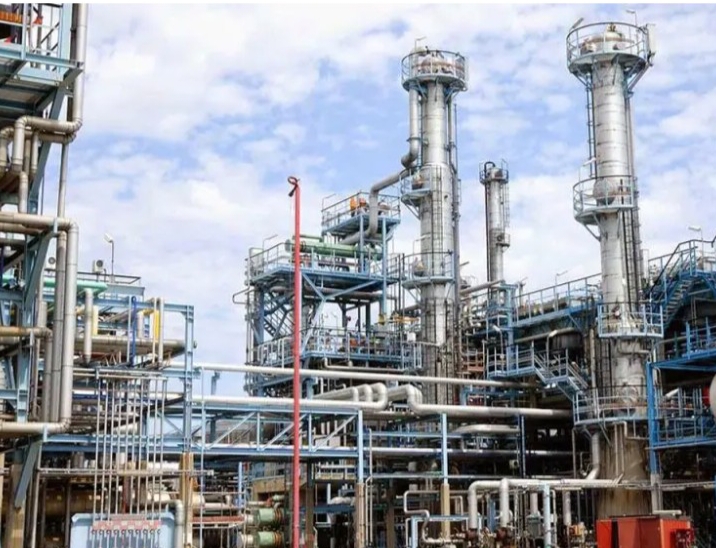The Nigerian-owned Port Harcourt Refinery has officially commenced the processing of crude oil, marking a significant milestone in the nation’s efforts to achieve energy independence.
The announcement was made on Tuesday by Olufemi Soneye, the spokesperson of the Nigerian National Petroleum Company Limited (NNPCL).
According to Soneye, the refinery is currently operating at 60% capacity, processing 60,000 barrels of crude oil per day.
The Port Harcourt Refinery, located in Rivers State, has a combined installed capacity of 250,000 barrels per day (bpd) when fully operational.
The current production level represents a crucial first step toward restoring full capacity after years of underperformance and missed operational deadlines.
The commencement of operations follows several years of rehabilitation efforts and delays. The refinery, once a key player in Nigeria’s domestic petroleum production, had been plagued by inefficiency, mismanagement, and aging infrastructure, which rendered it largely non-functional for extended periods.
The rehabilitation project, managed in collaboration with international engineering firms, aimed to overhaul its facilities and bring them up to global standards.
The ongoing operations are part of a phased rehabilitation strategy to restore the refinery’s productivity gradually.
The Nigerian government and the NNPCL had previously faced public scrutiny over repeated delays and missed deadlines in the refinery’s recommissioning.
This renewed activity is seen as a step toward alleviating Nigeria’s dependency on imported refined petroleum products, which has long been a drain on the nation’s foreign exchange reserves.
The spokesperson emphasized the significance of the refinery’s renewed operations, noting that the current output will help reduce the pressure on Nigeria’s importation of refined petroleum products.
This is particularly crucial as the nation grapples with economic challenges, including fluctuating crude oil prices, foreign exchange volatility, and a growing demand for refined petroleum products.
Stakeholders have expressed cautious optimism regarding this development. Industry analysts view the refinery’s restart as a potential game-changer for the Nigerian economy if managed effectively.
However, they also stress the importance of maintaining transparency, ensuring regular maintenance, and implementing efficient management practices to prevent a relapse into inefficiency.
The Port Harcourt Refinery’s rehabilitation aligns with broader efforts to revamp Nigeria’s oil and gas sector.
This includes the ongoing rehabilitation of the Warri and Kaduna refineries, as well as the anticipated operationalization of the Dangote Refinery, which is set to become Africa’s largest refining facility.
For many Nigerians, the restart of the Port Harcourt Refinery represents a glimmer of hope that the nation’s petroleum sector can regain its former glory and contribute significantly to economic stability and growth.

